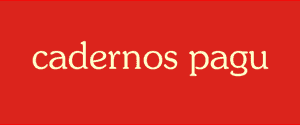In prodigious fasting, sometimes to death, Western women have expressed an extraordinary relationship to food for almost eight centuries. This essay attempts to explain such behavior by weaving together the fine-grained and fascinating historical data presented in the three books under review - Holy Anorexia (Bell, 1985); Fasting Girls: The Emergence of Anorexia Nervosa as a Modern Disease (Brumberg, 1988) e Holy Feast and Holy Fast: The Religious Significance of Food to Medieval Women (Bynum, 1987) - and viewing them from the cross-cultural and holistic perspectives fundamental to anthropology. I aim to show that Western female fasting differs radically from other kinds of fasting observed by anthropologists across the globe and that it involves a highly symbolic alteration of women's universal relationship to food. I argue that it is best understood as a multidetermined behavior, an interplay of ideological, economic, political, and social factors.
Fasting; Anthropology; Women; Food
